 |
||
|
||
| ||
Mitsumi CR-4808TE |
|
Tweet | ||
Mitsumi Electronics Corp. produces a wide range of computer components. The policy Mitsumi follows in the field of CD-RW drives is specific. The CR-4801TE recorder was a single alternative to CD-RW drives from HP and Yamaha which were some time ago at the top of the best-selling recorders. Later Mitsumi has taken another way of promotion of its drives on the market. As a rule, it was always a step behind the leaders while watching attentively the price policy of its competitors and maintaining its prices at the level beneficial for users. So, one of such models is in our lab today, it is the pre-production sample of the 4808 drive.
The latest CD-RW drive is based on the pickup from Oak Technology. The drive is equipped with its OTI-9796 controller. This controller also serve a base for Yamaha CRW2200 series. The drive is equipped with the buffer underrun error prevention technology ExacLink which is similar to the SafeBurn of Yamaha. The speeds of the drive are 16/8/40. However, initially the drive was developing as a model with 16/10/40 speeds. But I think that a 10x rewriting speed turned to be too slow, and the company drew figure 8. Thus, the company could avoid reproaches in slowness and lay stress on such a fast 8x speed.
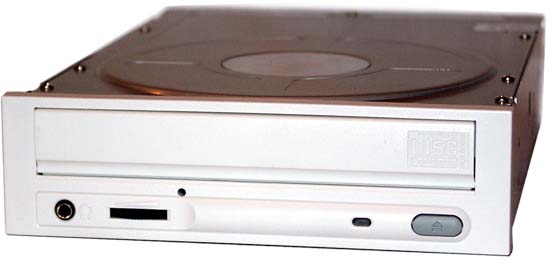
| Specification of the Mitsumi CR-4808TE: | |
| Firmware version | 1.1B |
| Recording modes | Disc-At-Once, Track-At-Once, Session-At-Once, MultiSession, Packet Writing |
| Recording formats | CD-DA, CD-ROM, CD-ROM XA, Photo CD, CD-Text, CD+G, CD-Extra, Video CD |
| Read/write support in Raw-mode | RAW-DAO - supported RAW-DAO Write Simulation - supported CD+G RAW-DAO - supported RAW-SAO - supported RAW-SAO Write Simulation - supported |
| Average access time | 110 ms |
| CD-R recording | 2x, 4x, 8X, 12X, 16x (CLV) |
| CD-RW recording | 2X, 4x, 8X |
| Buffer underrun error prevention technology | ExacLink |
| Interface | UltraDMA-33 |
| Reading | 40x max (6000 KBytes/s) |
| Buffer size | 2048 KBytes |
| Production date | May 2001 |
| Manufacturer | Philippines |
| Price as tested | Up to $130 |
The device ships in an OEM package.
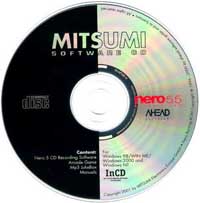
The box contains:
The CD contains a set of useful utilities:
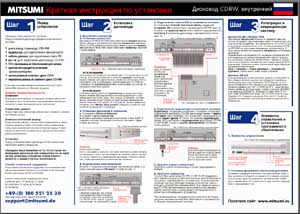

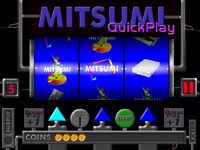
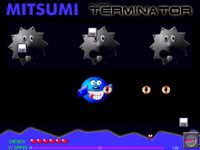
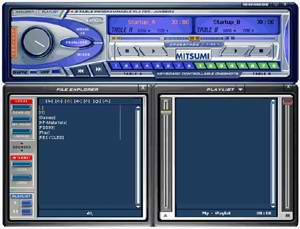
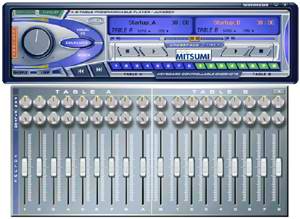
The buffer underrun error prevention technology realized in the CR-4808TE is ExacLink. But it was impossible to check it in operation since none of recording programs could identify this program.
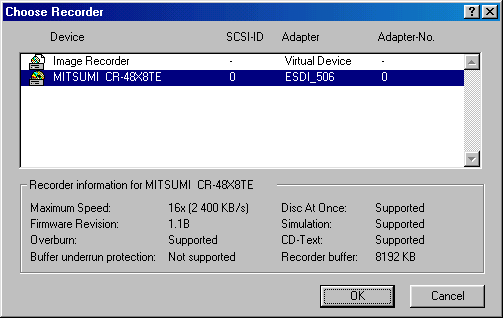
It think the problem occurred because we have only a pre-production sample and because of the latest version which we used according to the link given by Mitsumi.
Frankly speaking, I didn't notice at once what buffer memory size is shown by the Nero, especially because the official sites indicate 2 MBytes. But after I had noticed it I took differently the pickup developer Oak Technology and the company collaborating with it, Yamaha, which is the only vendor equipping its 16/10/40 recorder with a 8 MBytes buffer memory. It is interesting that the CRW2100E model doesn't record fast enough High Speed CD-RW discs at 10X (the results were closer to the 8x speed).
Probably, there are two versions: with 2 MBytes and 8 MBytes buffer memory. But I doubt it will be possible to tell one version from the other in case of the OEM packages.
Now about the ExacLink. The SeamlessLink, as you might remember, is said to work correctly without a complete software support. That is why we decided to test this technology and ascertain whether it work correctly or not. Well, it wasn't difficult for me to evoke buffer underrun at the 16X recording speed ;-)
Well, this disc got damaged in several minutes.
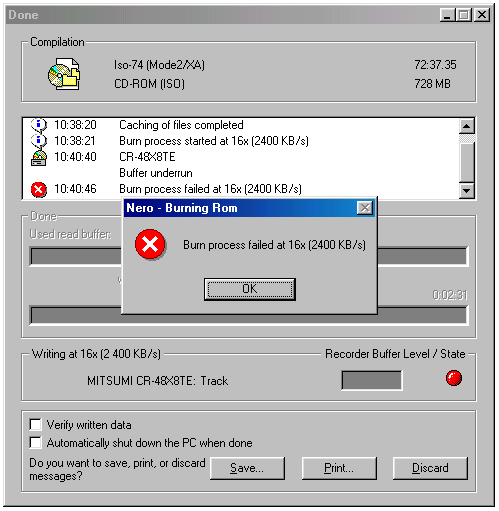
Another problem has occurred during disc recording was a particular selectivity of the drive towards discs, or rather, their recording speed. The CD-R Mirex can hardly be recorded at the speed higher than 8x. Higher speeds are absent in the list.
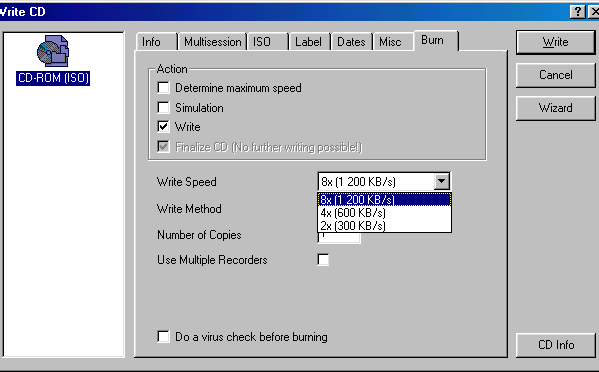
At the same time, a cyanine disc or a phthalocyanine one from Ritek can be recorded at any speed you like.
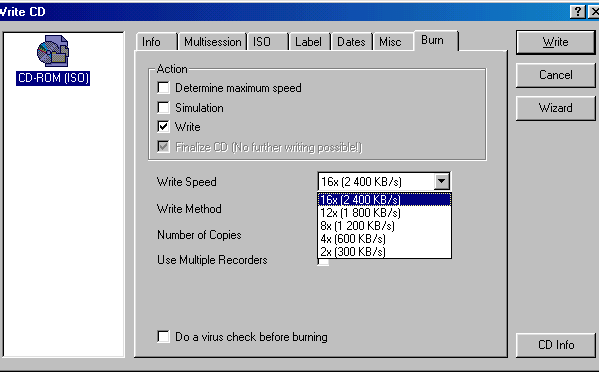
We tried to reinstall Nero, ASPI drivers, Windows, change the driver's position (primary/secondary master/slave), replace a mainboard. But it didn't help. Later we got a message from Mitsumi that the drive could select the optimal recording speed. Here you can find a PDF-file (10 KBytes) with the results of the internal tests and estimate the maximum recording speed of CD-R discs we used. With the discs we had we tried to find out what mechanism this technology was based on.
| CD-R | Highest possible recording speed |
| Sony CDQ74N1 (cyanine, by Sony -16X) | 8X |
| Mirex (phtalocyanine, by 4M -12x) | 8X |
| EMTEC/BASF (phtalocyanine, by 4M -12x) | 8X |
| Acer (phtalocyanine, by Acer -12x) | 16X |
| Philips (phtalocyanine, by Ritek -12x) | 16X |
| TDK Reflex Ultra (cyanine, by TY - 16X) | 16X |
| Verbatim (metal azo, by Mitsubishi - 16x) | 12X |
| PDM (cyanine, by Ritek - n/a) | 16X |
| HP (phtalocyanine, by Ricoh -16x) | 16X |
| TDK Reflex (cyanine, by TDK - 12x) | 12X |
| Kodak Ultima (phtalocyanine, by Kodak -12x) | 8X |
It is likely that the recorder sets the speed according to the ATIP information. But I don't understand what criteria are used for setting a particular speed.
The drive works noiselessly even at high speeds. Discs ejected are more than just warm.
The design hasn't changed since the CR-4805TE. There is only one LED working in several modes.



The drive can be installed both in vertical and in horizontal positions. On the rear panel you can find a digital-out which is not marked and doesn't work.
Apart from the CD-ROM Teac 540E, for the performance comparison in reading operations we chose the Plextor PX-W1610TA and Yamaha CRW2100E.

The Mitsumi drive falls just a little behind the Plextor, while going far ahead of the Yamaha and CD-ROM TEAC.
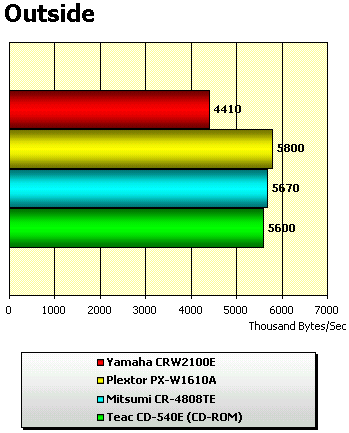
The only I can say here is that the Yamaha falls too behind the other contestants. The updated firmware version didn't help this drive perform better.
CPU utilization in the CD-ROM Transfer Rate test:
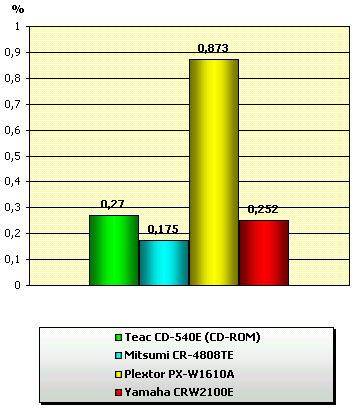
At a rather high speed the CR-4808TE loads the CPU moderately. A little faster Plextor loads the processor 7 times more.

The access time of the drive is also very good.
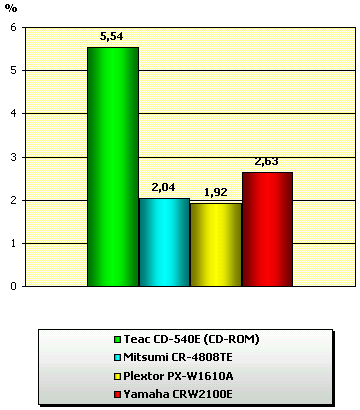
The total CPU utilization is excellent as well.
The WinBench tests show that the developers paid a great attention to the speed characteristics of the reading part. Now let me turn to the recording part of the drive.
The Mitsumi refused to record the Sony CDQ-74N1 at the speed higher than 8X. That is why we used CD-R TDK Reflex Ultra 16x as a cyanine high-quality 16x disc.
Recording of the cyanine high-quality CD-R disc (TDK Reflex Ultra, Philips Silver Premium) 16x
| CD-RW drive | Time (min.) |
| Mitsumi CR-4808TE | 5.55 |
| Yamaha CRW2100E | 6.59 |
| Plextor PX-W1610TA | 6.08 |
The CLV recording technology, as you can see, is much better than the P-CAV. The drive has recorded the disc at less than 6 minutes at 16X!
The Philips MultiPurpose 1x-12x by Ritek was used as a phthalocyanine CD-R disc.
Recording of the phthalocyanine CD-R disc (Mirex, Philips MP, 12x rated recording speed) 16x
| CD-RW drive | Time (min.) |
| Mitsumi CR-4808TE | 6.02 |
| Yamaha CRW2100E | 6.51 |
| Plextor PX-W1610TA | 6.28 |
The situation is the same: the performance level of the CR-4808TE is the best.
Recording of the "noname" CD-R disc (cyanine, the rated record speed is unknown) 4X
| CD-RW drive | Time (min.) |
| Mitsumi CR-4808TE | 20.10 |
| Yamaha CRW2100E | 20.58 |
| Plextor PX-W1610TA | 20.29 |
Well, both reading and recording is rather fast. But what about quality of recording?
Philips CD-RW 4x
| CD-RW drive | Time (min.) |
| Mitsumi CR-4808TE | 35.22 (InCD) |
| Yamaha CRW2100E | 29.48 (DirectCD) |
| Plextor PX-W1610TA | 29.56 (DirectCD) |
Ricoh CD-RW 10x
| CD-RW drive | Time (min.) |
| Mitsumi CR-4808TE | 20.19 (InCD) |
| Yamaha CRW2100E | 20.31 (DirectCD) |
| Plextor PX-W1610TA | 12.25 (DirectCD) |
Formatting of CD-RW discs takes too much time for the CR-4808TE. At 4x it falls too far behind the other contestants. Moreover, the drive hung from time to time, especially with the Philips 1x-4x media from Harmonic Hall. However, such problems didn't occur in case of the TDK CD-RW discs from Mitsubishi.
Philips CD-RW 4x
| CD-RW drive | Time (min.) |
| Mitsumi CR-4808TE | 21.06 (InCD) |
| Yamaha CRW2100E | 21.38 (DirectCD) |
| Plextor PX-W1610TA | 20.28 (DirectCD) |
CD-RW Ricoh 8x-10x
| CD-RW drive | Time (min.) |
| Mitsumi CR-4808TE | 9.44 (InCD) |
| Yamaha CRW2100E | 11.22 (DirectCD) |
| Plextor PX-W1610TA | 9.31 (DirectCD) |
It is interesting that the time of disc recording at 8x corresponds to the 10x speed of the PX-W1610TA. However, the time difference between the drives makes only 1-2 minutes when the InCD utility is used (in comparison to the DirectCD). But you should remember that the formatting process with the InCD can be much slower.
| CD-R disc, recording speed | BLER |
| TDK Reflex Ultra, 16x | 10-18 |
| Philips MultiPurpose, 16x | 8-14 |
| "noname", 4x | 500-550 |
Here are the data for the Plextor PX-W1610TA
| CD-R disc, recording speed | BLER |
| Philips Silver, 12x | 10-12 |
| Mirex, 12x | 1-3 |
| Mirex, 16x | 2-5 |
(for these tests we used a device described in the fifth part of our review)
The tests show that the quality of CD recording is high enough.
Here are the graphs produced by the CDCATS SA3 station:
The results of the CDCATS station show once again that the Mitsumi CR4808TE has rather good recording quality. The recorder takes tolerantly "noname" CD-R discs of high quality, the average BLER factor over the whole disc is 430. The phthalocyanine Philips disc recorded at 16X has rather good quality. Too high Pit-Jitter and Land-Jitter results are the guilty of the disc, not the drive.
Graph of reading of the CD-R TDK Reflex Ultra (16x writing speed)
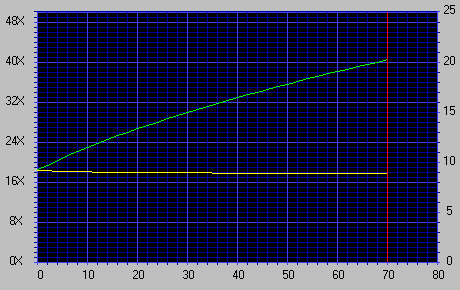
Graph of reading of the CD-R Philips MultiPurpose (16x writing speed)
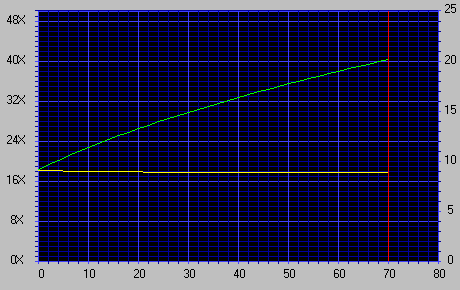
Graph of reading of the CD-R "noname" (4x writing speed)
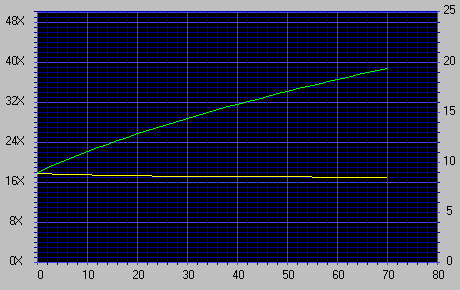
The all graphs look smooth, without splashes and falls.
| Mitsumi CR-4808TE | Plextor PX-W1610A | Yamaha CRW2100E | |
| Average | 30.76x | 30.11x | 21.78x |
| Random Seek | 114 ms | 131 ms | 128 ms |
| SpinUp Time | 3.45 sec | 1.76 sec | 3.78 sec |
| SpinDown Time | 3.83 sec | 1.93 sec | 3.77 sec |
| Disc Eject Time | 1.36 sec | 1.76 sec | 1.84 sec |
| Disc Load Time | 0.99 sec | 1.72 sec | 1.74 sec |
| Disc Recognition Time | 6.74 sec | 10.33 sec | 6.36 sec |
| Mitsumi CR-4808TE (16x) |
Plextor PX-W1610A (12x) |
Yamaha CRW2100E (12x) |
|
| Average | 30.61x | 32.68x | 21.84x |
| Random Seek | 118 ms | 138 ms | 128 ms |
| SpinUp Time | 3.81 sec | 1.74 sec | 3.75 sec |
| SpinDown Time | 5.12 sec | 1.92 sec | 3.73 sec |
| Disc Eject Time | 1.34 sec | 1.74 sec | 1.84 sec |
| Disc Load Time | 1.00 sec | 1.72 sec | 1.73 sec |
| Disc Recognition Time | 6.61 sec | 10.60 sec | 6.43 sec |
| Mitsumi CR-4808TE | Plextor PX-W1610A | Yamaha CRW2100E | |
| Average | 29.57x | 30.11x | 21.84x |
| Random Seek | 118 ms | 131 ms | 129 ms |
| SpinUp Time | 3.85 sec | 1.76 sec | 2.74 sec |
| SpinDown Time | 5.13 sec | 1.93 sec | 3.71 sec |
| Disc Eject Time | 1.32 sec | 1.76 sec | 1.80 sec |
| Disc Load Time | 0.98 sec | 1.72 sec | 1.75 sec |
| Disc Recognition Time | 6.78 sec | 10.33 sec | 6.40 sec |
The Mitsumi is not a new champion in disc reading, but it implements it incredibly well. The results conform to the WinBench data.
| CD-RW UDF (4x) | CD-RW UDF (10x) | CD-RW ISO (4x) | |
| Reading speed | 10.20x | 20.24x | 20.46x |
However, CD-RW discs read not so good. The drive has an average performance, especially with CD-RW discs in UDF format.
Graph of reading of the recorded CD-R TDK Reflex Ultra (16X)
Windows 98SE
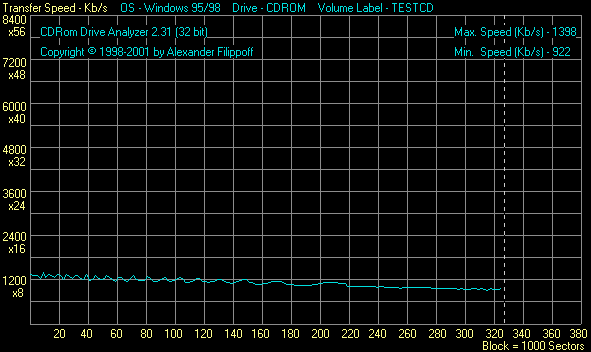
Windows 2000
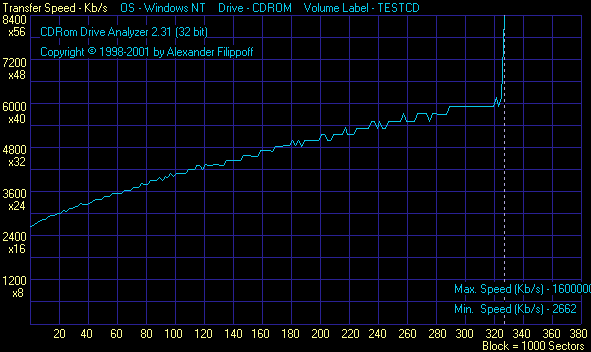
Windows 98SE
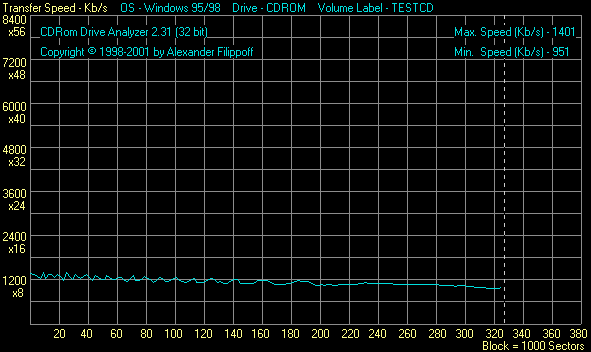
Windows 2000
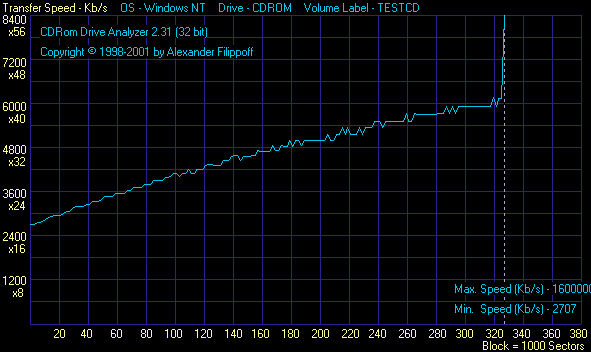
Windows 98SE
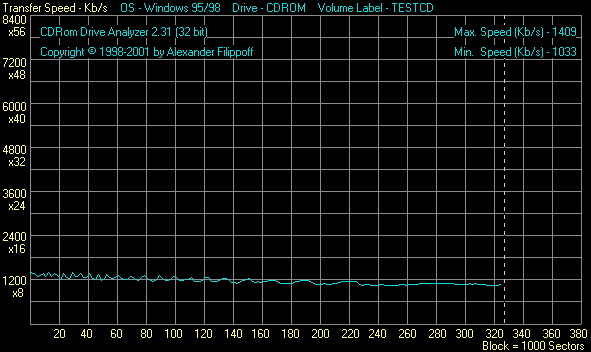
Windows 2000
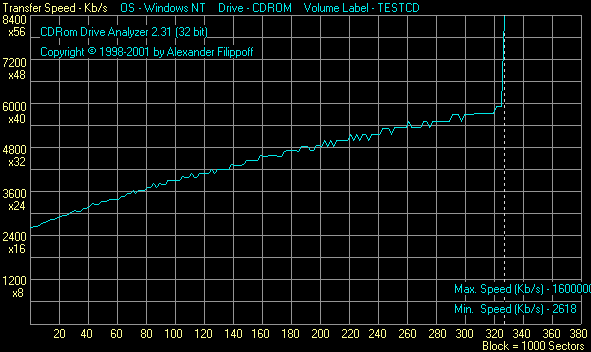
The results obtained under the Windows 2000 are rather good. The smooth graphs are very similar to the CDSpeed results.
| Piano Favorites | Acoustic Planet vol.2 | Bloodhound Gang "Greatest Hits" | |
| Average extraction speed | 6,4X | 5,3X | 17,7X |
| Total errors* | 3.10% | 0.00% | 0.00% |
* - 3.10% means that the drive retrieved 3.10% of data with errors.
The CR-4808TE doesn't extract tracks from CDs fast and correctly. Such a low percentage of errors is achieved at the expense of a moderate extraction speed.
Sound track extraction from audio CDs (EAC 0.9 prebeta 11)
| Piano Favorites | Acoustic Planet vol.2 | Bloodhound Gang "Greatest Hits" | |
| Average extraction speed | 5.8X | 5.3X | 17.4X |
The EAC extracts sound tracks slower than the CDDAE because of the more perfect and complicated algorithm of error correction, but the general correlation is the same. Well, after the 30X CyClone of TDK the Mitsumi's results look rather pale.
| Offset | 2812 bytes (703 samples) |
| Sequential Read Test | Average Speed: 17.20 X Data Errors: 0 Sync Errors: 0 |
| Harmonica Read Test | Average Access Time: 169 ms Data Errors: 0 Sync Errors: 0 Total Data Errors: 0 |
| On The Fly Copying Simulation | Copying at 1 X OK Copying at 2 X OK Copying at 4 X OK Copying at 6 X OK Copying at 8 X OK Copying at 10 X OK Copying at 12 X too slow Copying at 16 X too slow |
| CD Text | Drive is capable of reading CD Text information |
| Subchannel Data | Test 1 Track (01): 01 Relative position (01:05.00): 01:05.00 Absolute position (01:07.00): 01:07.00 Index (5): 5 Test 2 Track (17): 17 Relative position (01:33.00): 01:33.00 Absolute position (33:35.00): 33:35.00 Index (1): 1 Test 3 Track (36): 36 Relative position (00:00.00): 00:00.00 Absolute position (70:02.00): 70:02.00 Index (1): 1 |
| Leadin | Drive cannot read data from the Leadin |
| Leadout | Drive cannot read data from the Leadout |
The detailed information on the tested parameters are given in the help file to the CDSpeed99 test program.
The only drawback is lack of a possibility of reading data from Lead-In and Lead-Out.
| CD-R | Additional disc length obtained | Total length of the recorded data |
| Philips Silver Premium 16x (TY) | 2 min. 28 sec. | 77:11.39 |
| Mirex 650 MBytes | 2 min. 59 sec. | 77:28.61 |
| 90 min Rostok Media | 93:16.24 |
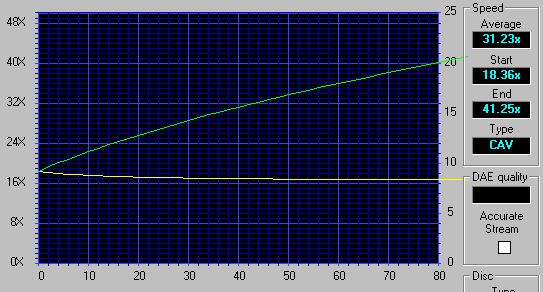
In this test the Mitsumi comes very close to the CD-RW drives based on the Ricoh's pickup which are leading here.
Copying of the recorded cyanine CD-R (Philips Silver, TDK Reflex Ultra)
| CD-RW drive | Time (min.) |
| Mitsumi CR-4808TE | 4.59 |
| Plextor PX-W1610A | 5.36 |
| Yamaha CRW2100E | 5.19 |
Copying of the recorded phthalocyanine CD-R (Mirex, Philips MultiPurpose)
| CD-RW drive | Time (min.) |
| Mitsumi CR-4808TE | 4.23 |
| Plextor PX-W1610A | 5.32 |
| Yamaha CRW2100E | 6.11 |
Copying of the recorded CD-R "noname"
| CD-RW drive | Time (min.) |
| Mitsumi CR-4808TE | 5.33 |
| Plextor PX-W1610A | 5.56 |
| Yamaha CRW2100E | 6.26 |
"Golden" CD (Windows 98SE)
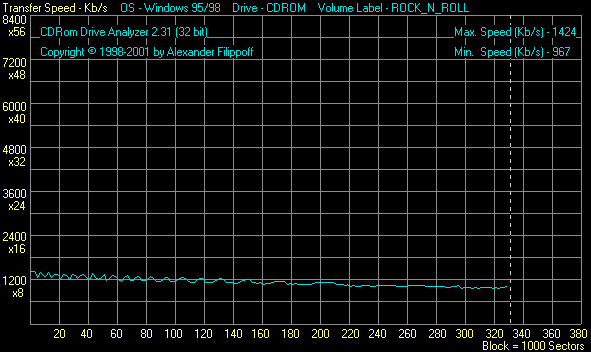
"Golden" CD (Windows 2000)
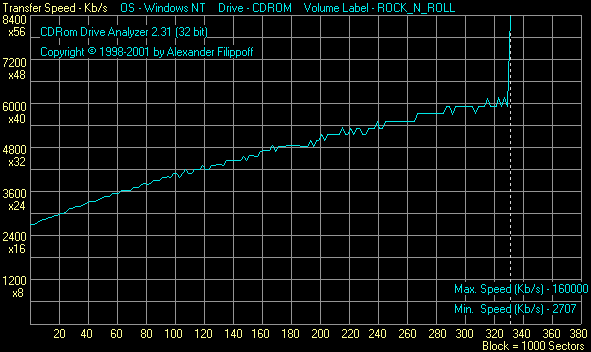
Scratched disc (Windows 98SE)
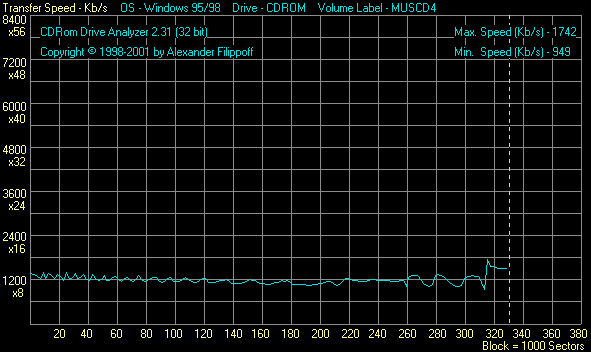
Scratched disc (Windows 2000)
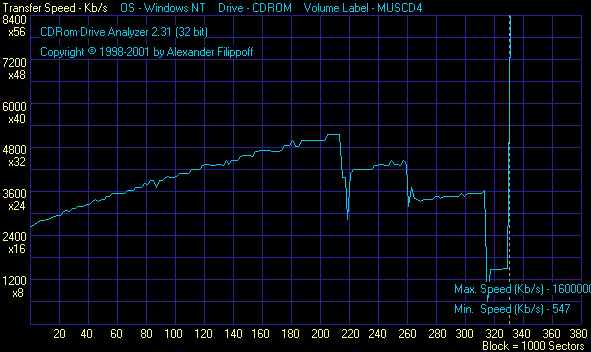
The golden disc reads excellently, while the graph of the scratched one is typical of many other good CD-ROM drives - dropping of the speed in case of an error and further slow speed-up. However, the recorder spotted an error at the end of the disc (unit #320) where the others passed smoothly (here the drive has decreased the speed to 8x).
Well, this recorder is not an absolute champion, and it won't be easy for the company to attract attention of customers exactly to this model because of the great variety so similar drives. However, the company follows the most effective policy of maintaining the prices at the lowest possible level (though, it may be not the most convenient one). I think the price of $130 will soon be cut to $110-115.
This model will probably flash by on the market giving the way to the faster modification the company is developing now. But anyway, taking into consideration such a low price I think it will become quite popular among users.
The drive does have some disadvantages, but the most part of them is connected with the fact that it is still a pre-production sample. At present, if you are interested in the fast and high-quality operation with audio CD, as well as in a convenient operation with CD-RW media, you'd better wait for 1-2 updated versions. Besides, remember that the drive doesn't take all CD-R discs equally.
As far as the ExacLink is concerned, the situation is still vague. I'm sure it is realized at least at the hardware level. Why it doesn't work is the question to answer. However, my colleagues from Germany say it works in production samples.
In all other respects, it is a fast and stable CD-ROM drive with rather high recording possibilities at the moderate price.
Write a comment below. No registration needed!
|
Article navigation: |
| blog comments powered by Disqus |
| Most Popular Reviews | More RSS |
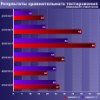 |
Comparing old, cheap solutions from AMD with new, budget offerings from Intel.
February 1, 2013 · Processor Roundups |
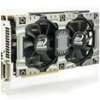 |
Inno3D GeForce GTX 670 iChill, Inno3D GeForce GTX 660 Ti Graphics Cards A couple of mid-range adapters with original cooling systems.
January 30, 2013 · Video cards: NVIDIA GPUs |
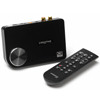 |
Creative Sound Blaster X-Fi Surround 5.1 An external X-Fi solution in tests.
September 9, 2008 · Sound Cards |
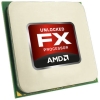 |
The first worthwhile Piledriver CPU.
September 11, 2012 · Processors: AMD |
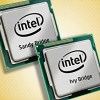 |
Consumed Power, Energy Consumption: Ivy Bridge vs. Sandy Bridge Trying out the new method.
September 18, 2012 · Processors: Intel |
| Latest Reviews | More RSS |
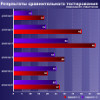 |
Retested all graphics cards with the new drivers.
Oct 18, 2013 · 3Digests
|
 |
Added new benchmarks: BioShock Infinite and Metro: Last Light.
Sep 06, 2013 · 3Digests
|
 |
Added the test results of NVIDIA GeForce GTX 760 and AMD Radeon HD 7730.
Aug 05, 2013 · 3Digests
|
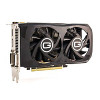 |
Gainward GeForce GTX 650 Ti BOOST 2GB Golden Sample Graphics Card An excellent hybrid of GeForce GTX 650 Ti and GeForce GTX 660.
Jun 24, 2013 · Video cards: NVIDIA GPUs
|
 |
Added the test results of NVIDIA GeForce GTX 770/780.
Jun 03, 2013 · 3Digests
|
| Latest News | More RSS |
Platform · Video · Multimedia · Mobile · Other || About us & Privacy policy · Twitter · Facebook
Copyright © Byrds Research & Publishing, Ltd., 1997–2011. All rights reserved.